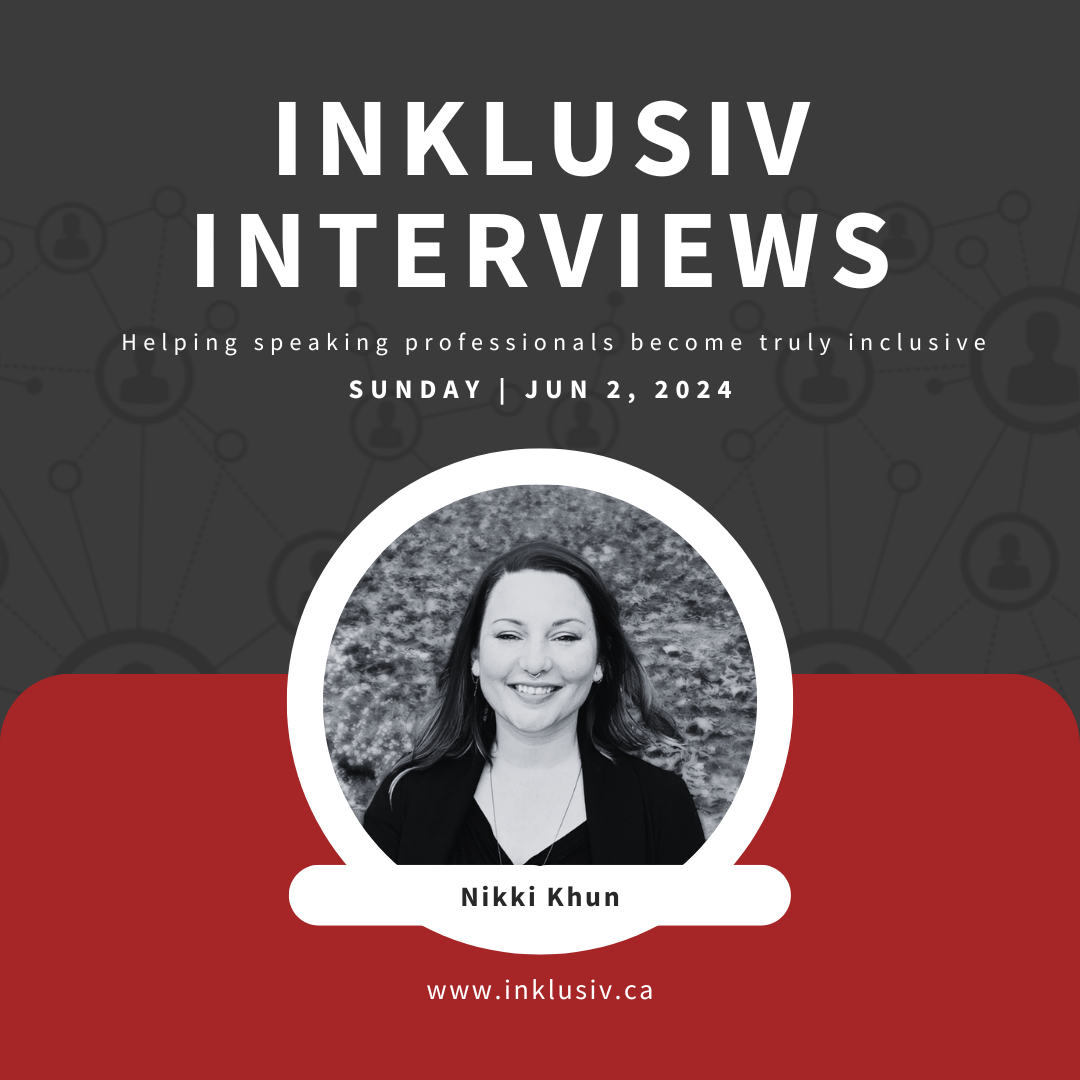Interview with Nikki Kuhn

We love to meet with audience members with disabilities who are willing to come forward and share a little bit about their own personal journey and experiences, attending live, in-person, or virtual speaking or training events. Through their unique and generous perspectives, speakers, trainers, facilitators, and other communication professionals can hopefully learn about some of the things that they do well, but also (and maybe more importantly) about some of the things they could improve to provide an experience that is truly inclusive of everyone.
Meet Nikki, an audience member who has ADHD and is dyslexic
So, without further ado, let’s dive right into today’s interview with Nikki Khun (she/her). Nikki has ADHD and is dyslexic, and comes to us from Philadelphia, Pennsylvania.
Introductions
QUESTION 01 Can you tell us a bit about yourself, and how your disability might impact your experience, as someone who attends live in-person and virtual events?
I am neurodivergent (ADHD and Dsylexic). Live events require a certain amount of masking (hiding stims or adjusting them to be more socially acceptable) and can be quite draining. Virtual events allow for less masking, but require more focus, and I really benefit from Closed Captions to stay engaged and present in conversations.
I have a passion for accessibility because I believe that there is strength in diversity and that we lose out when we exclude others. I am always working on educating others, sharing accessibility resources, and addressing concerns to enable us to create a more inclusive world. Accessibility benefits all!
Things that ruin the experience
QUESTION 02 Thinking back on some of your experiences attending in-person or virtual events, what are some of the worst things speakers, trainers, and other communication experts can do to ruin your experience as an attendee?
In our post-Covid and highly virtual world, one of my biggest pet peeves is when speakers require and/or shame others to turn on their camera. Zoom fatigue is real and sometimes I like the ability to unmask and simply just be instead of worrying about how I’m presenting myself to others. Especially as a mom, my life is chaotic and sometimes having that displayed on camera can be a distraction to others on the call. I appreciate understanding and flexibility to allow folks to show up as they are or need to be.
Things that make a positive impact
QUESTION 03 Can you share some of the great things speakers, trainers, and other communication experts sometimes do that make a positive impact on your ability to fully enjoy your in-person or virtual event experiences?
I’m thrilled when I hear, “I’d love to see your faces so if you feel comfortable feel free to turn your camera on.” It doesn’t shame participants, it allows the autonomy and respect to chose what works best for you, but also empowers members to be more engaged if that’s what they feel comfortable doing.
Sharing a piece of advice
QUESTION 04 If you had one piece of advice to give speakers, trainers, and other communication experts, so their content became more inclusive of people who have disabilities, what would it be?
To be considerate that there are many ways of learning, engaging, and participating. I strongly believe accessibility benefits all and when we incorporate that awareness everyone feels more comfortable. For instance, if the only means of asking a question is verbally (whether in person or online), you can exclude people with disabilities that may struggle to find the right time to speak up, or cannot easily engage physically. But when you offer other means of engagement, for example a means to digitally ask questions, you then allow for the users are too shy to be involved or the users who might need more time to process their questions.
Wrapping up
QUESTION 05 Thank you for sharing some of your insights with us today. As we wrap up our conversation, is there anything that you’d like to add, such as another thought, another piece of advice, another perspective, etc.?
As an IAAP Certified Professional in Web Accessibility, I have loads of advice on how to make presentations and digital content more accessible.
Connect with our guest on social
Interested in knowing more about our guest this week? You can follow Nikki on LinkedIn.

About Denis Boudreau
Denis Boudreau is a consultant, trainer, and speaker specializing in digital accessibility and disability inclusion. He works with organizational leaders who want to equip their teams with the skills to create accessible websites and digital products – so no one is left behind. A Certified Professional in Web Accessibility (CPWA), Denis has trained thousands of web professionals over the past 20+ years and delivered hundreds of workshops in both English and French. He has helped leading brands like Netflix, Salesforce, and Victoria’s Secret embed accessibility into their digital strategies, empowering them to meet legal obligations, improve user experience, and connect with more people, more effectively.
